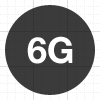
The 6G Firewall is a powerful, well-optimized blacklist that checks all URI requests against a set of carefully constructed .htaccess directives. This happens quietly behind the scenes at the server level, which is optimal for performance and resource conservation. Most WordPress plugins require both PHP and MySQL, which can be overkill and even wasteful depending on the scenario and your overall security strategy. Implementing an .htaccess solution such as the 6G Firewall, the code is executed without invoking the memory and resources required for PHP, MySQL, etc. That gives you better performance while saving server resources for legitimate traffic.
How it works
Like other Apache firewalls and blacklists, the 6G operates at the server-level. Basically you add the 6G code to your site’s root .htaccess file and then sit back and relax while 6G works its magic. That’s the beauty of it: there is no configuration required. Just add the code and done.
Once implemented, 6G scans every HTTP request made to your site. It compares key aspects of each request against a carefully formulated set of patterns and expressions. So if someone or something triggers a match, they immediately are blocked, silently behind the scenes (via 403 Forbidden response). So legitimate visitors can continue to surf your site with total confidence, while the bad guys are busy getting kicked to the curb by 6G.
6G Firewall
The 6G Firewall/Blacklist consists of the following sections:
# 6G:[QUERY STRING]# 6G:[REQUEST METHOD]# 6G:[REFERRER]# 6G:[REQUEST STRING]# 6G:[USER AGENT]# 6G:[IP ADDRESS]
Each of these sections works independently of the others, such that you could, say, omit the entire query-string and IP-address blocks and the remaining sections would continue to work just fine. Mix ’n match ’em to suit your needs. This code is formatted for deployment in your site’s root.htaccess file. Remember: always make a backup of your .htaccess before making any changes.
# 6G FIREWALL/BLACKLIST
# @ https://perishablepress.com/6g/
# 6G:[QUERY STRINGS]
<IfModule mod_rewrite.c>
RewriteEngine On
RewriteCond %{QUERY_STRING} (eval\() [NC,OR]
RewriteCond %{QUERY_STRING} (127\.0\.0\.1) [NC,OR]
RewriteCond %{QUERY_STRING} ([a-z0-9]{2000,}) [NC,OR]
RewriteCond %{QUERY_STRING} (javascript:)(.*)(;) [NC,OR]
RewriteCond %{QUERY_STRING} (base64_encode)(.*)(\() [NC,OR]
RewriteCond %{QUERY_STRING} (GLOBALS|REQUEST)(=|\[|%) [NC,OR]
RewriteCond %{QUERY_STRING} (<|%3C)(.*)script(.*)(>|%3) [NC,OR]
RewriteCond %{QUERY_STRING} (\\|\.\.\.|\.\./|~|`|<|>|\|) [NC,OR]
RewriteCond %{QUERY_STRING} (boot\.ini|etc/passwd|self/environ) [NC,OR]
RewriteCond %{QUERY_STRING} (thumbs?(_editor|open)?|tim(thumb)?)\.php [NC,OR]
RewriteCond %{QUERY_STRING} (\'|\")(.*)(drop|insert|md5|select|union) [NC]
RewriteRule .* - [F]
</IfModule>
# 6G:[REQUEST METHOD]
<IfModule mod_rewrite.c>
RewriteCond %{REQUEST_METHOD} ^(connect|debug|move|put|trace|track) [NC]
RewriteRule .* - [F]
</IfModule>
# 6G:[REFERRERS]
<IfModule mod_rewrite.c>
RewriteCond %{HTTP_REFERER} ([a-z0-9]{2000,}) [NC,OR]
RewriteCond %{HTTP_REFERER} (semalt.com|todaperfeita) [NC]
RewriteRule .* - [F]
</IfModule>
# 6G:[REQUEST STRINGS]
<IfModule mod_alias.c>
RedirectMatch 403 (?i)([a-z0-9]{2000,})
RedirectMatch 403 (?i)(https?|ftp|php):/
RedirectMatch 403 (?i)(base64_encode)(.*)(\()
RedirectMatch 403 (?i)(=\\\'|=\\%27|/\\\'/?)\.
RedirectMatch 403 (?i)/(\$(\&)?|\*|\"|\.|,|&|&?)/?$
RedirectMatch 403 (?i)(\{0\}|\(/\(|\.\.\.|\+\+\+|\\\"\\\")
RedirectMatch 403 (?i)(~|`|<|>|:|;|,|%|\\|\s|\{|\}|\[|\]|\|)
RedirectMatch 403 (?i)/(=|\$&|_mm|cgi-|etc/passwd|muieblack)
RedirectMatch 403 (?i)(&pws=0|_vti_|\(null\)|\{\$itemURL\}|echo(.*)kae|etc/passwd|eval\(|self/environ)
RedirectMatch 403 (?i)\.(aspx?|bash|bak?|cfg|cgi|dll|exe|git|hg|ini|jsp|log|mdb|out|sql|svn|swp|tar|rar|rdf)$
RedirectMatch 403 (?i)/(^$|(wp-)?config|mobiquo|phpinfo|shell|sqlpatch|thumb|thumb_editor|thumbopen|timthumb|webshell)\.php
</IfModule>
# 6G:[USER AGENTS]
<IfModule mod_setenvif.c>
SetEnvIfNoCase User-Agent ([a-z0-9]{2000,}) bad_bot
SetEnvIfNoCase User-Agent (archive.org|binlar|casper|checkpriv|choppy|clshttp|cmsworld|diavol|dotbot|extract|feedfinder|flicky|g00g1e|harvest|heritrix|httrack|kmccrew|loader|miner|nikto|nutch|planetwork|postrank|purebot|pycurl|python|seekerspider|siclab|skygrid|sqlmap|sucker|turnit|vikspider|winhttp|xxxyy|youda|zmeu|zune) bad_bot
# Apache < 2.3
<IfModule !mod_authz_core.c>
Order Allow,Deny
Allow from all
Deny from env=bad_bot
</IfModule>
# Apache >= 2.3
<IfModule mod_authz_core.c>
<RequireAll>
Require all Granted
Require not env bad_bot
</RequireAll>
</IfModule>
</IfModule>
# 6G:[BAD IPS]
<Limit GET HEAD OPTIONS POST PUT>
Order Allow,Deny
Allow from All
# uncomment/edit/repeat next line to block IPs
# Deny from 123.456.789
</Limit>To implement: include the entire 6G Blacklist in the root .htaccess file of your site. Remember to backup your original .htaccess file before making any changes.
More information :
https://perishablepress.com/6g/
All appreciation and support goes to Jeff Starr aka @perishable whos spends countless hours researching and developing the Blacklist I’ve first come across back in 2010.